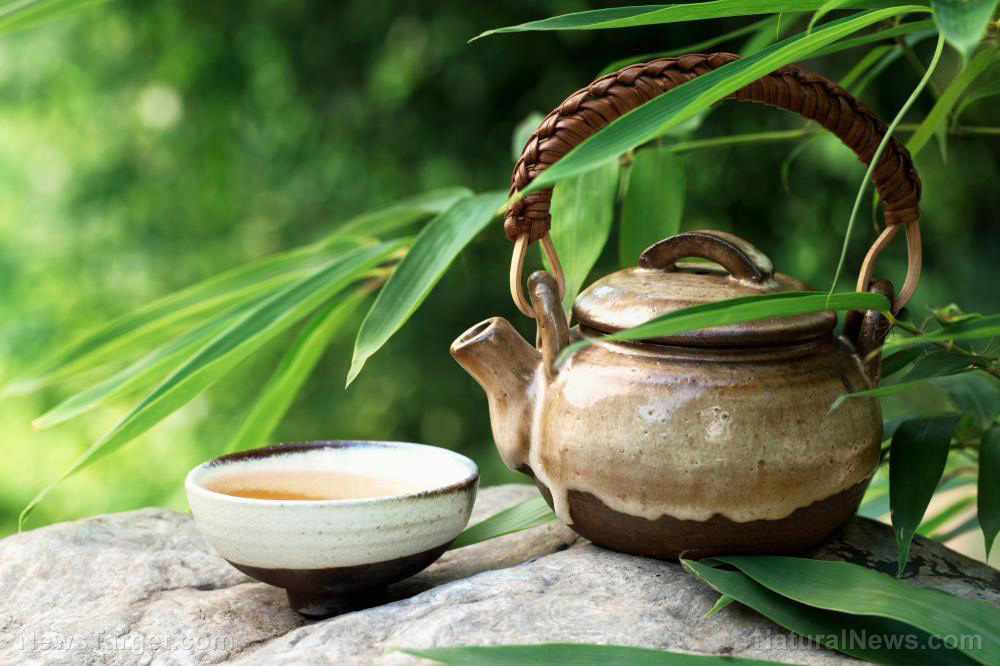
The origin of tea and its health benefits
Tea, the second most consumed beverage in the world, is an aromatic drink prepared by steeping fresh leaves or buds in hot water. These leaves and buds are obtained from the tea plant known as Camellia sinensis. This small tree is native to Southeast Asia but is now cultivated in other parts of the world. The leaves and buds used to make tea are picked from this tree three to four times every year between spring and fall.
C. sinensis contains many bioactive compounds called polyphenols. These compounds are said to be the most powerful chemicals found in plants and exhibit potent activities, such as antioxidant, anti-inflammatory, cardioprotective, and anti-cancer activities. The two polyphenols commonly associated with teas and their health benefits are epigallocatechin-3-gallate (EGCG) and epigallocatechin (EGC). These compounds are well-known for their ability to suppress the growth of different types of cancer.
C. sinensis also contains important compounds called tannins, which, along with the harvesting, origin, and manufacturing of tea, gives the drink its unique flavor. Tannins are polyphenols and serve as a basis for grading tea. Tea grades are also determined based on the size and cut of the leaves and the location from which they were harvested on the tea plant. The highest tea grades are known as "orange pekoe" (youngest buds and flowers) while the lowest are called "fannings" (small, broken leaves) or "dust" (small particles left after sifting).
The major types of tea produced from C. sinensis are black tea, oolong tea, green tea, white tea, and yellow tea. The difference between each type is determined by the way the leaves are processed -- that is, how quickly they are treated after harvesting and their degree of oxidation or fermentation. Here are some classic examples of tea and the health benefits they offer. (Related: Tea found to prevent fat storage in the liver, lower blood glucose.)
Green tea
Green tea is made from leaves that were not oxidized; instead, the leaves were heated or steamed immediately after picking to inactivate native microbes and an enzyme called polyphenol oxidase, which catalyzes their oxidation. As a drink, green tea is rich in antioxidants that protect cells from damage caused by free radicals and reduce the risk of heart disease. The polyphenols in green tea can also lower bad cholesterol levels and decrease the risk of certain cancers. The main component of green tea is EGCG.
Black tea
Black tea is the most suitable tea for supporting heart health. It is produced from fully oxidized tea leaves and has a stronger flavor than other tea types. It also contains more caffeine, although still less than the amount in coffee. While it has fewer antioxidants than green tea, the flavonoid content of black tea can do great things for the heart. Flavonoids are plant compounds that can also be found in fruits, vegetables, red wine, and dark chocolate. According to studies, flavonoids can reduce risk factors of heart disease, such as high blood pressure, high cholesterol, high triglyceride levels, and obesity.
White tea
White tea is also made from un-oxidized leaves and buds. This part of C. sinensis is picked just before leaves fully open, while they are still covered with white hairs; hence, the name. And because these leaves and buds undergo very minimal processing, white tea contains high amounts of antioxidant polyphenols. These compounds also possess anti-bacterial, anti-fungal, and antiviral properties. Like black and green tea, white tea also lowers the risk of heart disease. The EGCG in white tea helps blood vessels relax and dilate, preventing hypertension. White tea also protects against osteoporosis, promotes weight loss, and combats the signs of skin aging.
Kombucha
Kombucha is a fizzy drink produced by fermenting sweetened black or green tea with bacteria and yeast. This fermentation process breaks down the sugar in the tea and infuses the drink with probiotic bacteria. Probiotics affect the digestive system in positive ways: They help balance the gut microbiome, which helps prevent inflammatory diseases, and improves digestive health. Studies suggest that kombucha can also help lower the risk of cancer, bacterial infections, and heart disease, improve mental and liver health, and aid in the management of weight and Type 2 diabetes.
There are different types of tea available on the market, all of which offer significant health benefits. No matter which type you choose to drink, you're guaranteed to boost your health with each cup. Just make sure to choose real tea and avoid overly sweetened ones to get the maximum benefits out of your drink.
Sources include:
Please contact us for more information.























